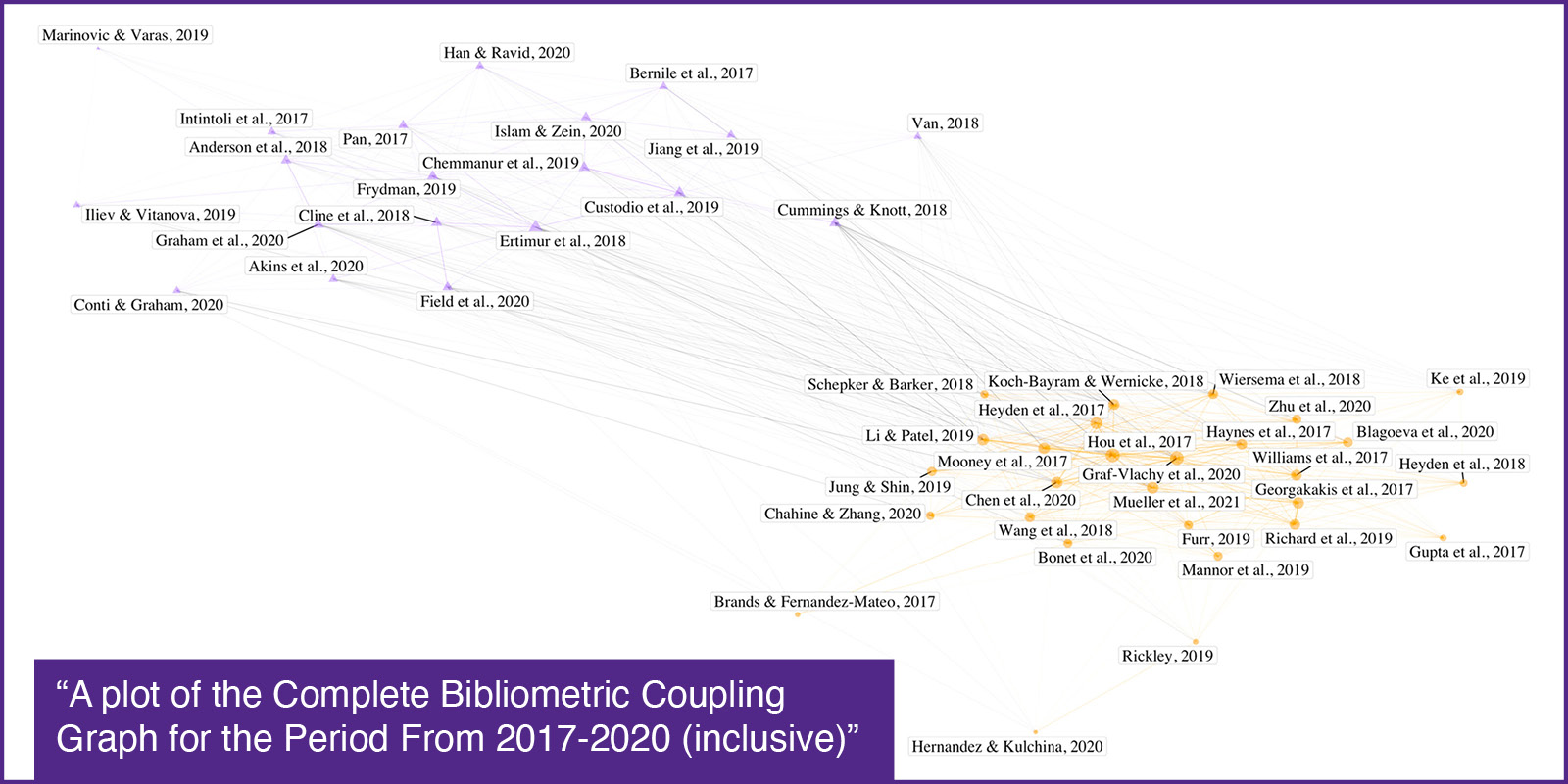Going Boldly Where No One Has Gone Before
The Background on Executive Background: An Integrative Review

“Executive background research builds on the assumption that our experiences in the past influence what we do in the present,” said Bilgili. “In our research, we documented how agency, human capital, imprinting, and upper echelons theories have advanced what we know about this relationship. Yet, we also provided evidence that scholarly work on executive background is fragmented, that is, management and non-management disciplines do not communicate effectively with one another. We also observed that scholarly work to date has generally focused on easy to observe, surface level background characteristics (e.g., age, education), and paid less attention to deeper level, difficult to observe background characteristics of executives (e.g., early life experiences). If progress is to be made, these would be important limitations to address. I am hopeful that the framework we presented, along with insights generated from the bibliometric analysis, will open new pathways to researchers in exploring the role of background in strategic leadership.”
 Bibliometric analysis involves applying advanced analytic techniques to citation data to generate a visual map of a research field, making it much easier for researchers to see the forest for the trees by identifying potential clusters, silos, islands, and streams in a research field. This provides opportunities for synthesis and integration. Because bibliometric analysis is based on comprehensive citation data, researchers have argued that inferences drawn from it (e.g., identification of clusters) are more objective.
Bibliometric analysis involves applying advanced analytic techniques to citation data to generate a visual map of a research field, making it much easier for researchers to see the forest for the trees by identifying potential clusters, silos, islands, and streams in a research field. This provides opportunities for synthesis and integration. Because bibliometric analysis is based on comprehensive citation data, researchers have argued that inferences drawn from it (e.g., identification of clusters) are more objective.
“Incorporating bibliometric analysis in a highly visible Journal of Management article will likely attract greater research attention to it, which would help diffuse its use in the management discipline,” noted Bilgili.
“There are several promising areas for future research but one that stands out to us is the relatively limited knowledge on how the CEO experience influences what opportunities they choose to pursue after stepping down from the CEO post and how well they fit into those roles,” commented Bilgili. “Increasingly, we are observing top executives pursuing significant career opportunities after retirement. For instance, some retired CEOs have either contemplated a gubernatorial or presidential run or came out of retirement (e.g., Carly Fiorina, Howard Schultz). Considering how influential these positions are, we need more work that will advance our understanding of the effect of CEO experience on post-CEO career extensions.”
To that end, Bilgili is currently working on a new research project with his wife, Mira Bilgili, assistant professor in the Department of Management, that focuses on the psychology of executives, including those who are active, approaching retirement, or retired. This project dives deeper into the unknown of the work of executives and has been funded by the College of Business with a summer research grant. They have been conducting interviews with top executives/board members to advance this project.
“The article we published in the Journal of Management ends with a phrase from Captain Kirk: ‘Go boldly where no one has gone before. After all, there is a lot to discover in the dark.’ Personally, I am keen on doing exactly that with this new project on the psychology of executive leadership.”
Reference: Campbell, J. T., Bilgili, H., Crossland, C., & Ajay, B. 2023. The Background on Executive Background: An Integrative Review. Journal of Management, 49(1): 7-51.
Bilgili joined the College of Business Administration in 2017. He has published 13 scholarly articles across various management outlets, including elite/top tier journals, such as the Academy of Management Review and Journal of Management, as well as other high-impact journals, such as Journal of Management Studies, Group & Organization Management, and Global Strategy Journal, among others. Bilgili has taught several core courses in the business curriculum including Business Ethics and Corporate Citizenship and Strategic Management capstones, and recently launched a new and well-received course titled Organizational Management and Data Analytics. His research is on the structural, relational, and psychological aspects of relationships and networks in the workplace and among the upper echelons of organizations, focusing on their effect on individuals, teams, and organizational strategy and performance. In addition, Bilgili has recently been elected as a senator to the Faculty Senate at K-State and is serving as a member of the Academic Affairs committee.